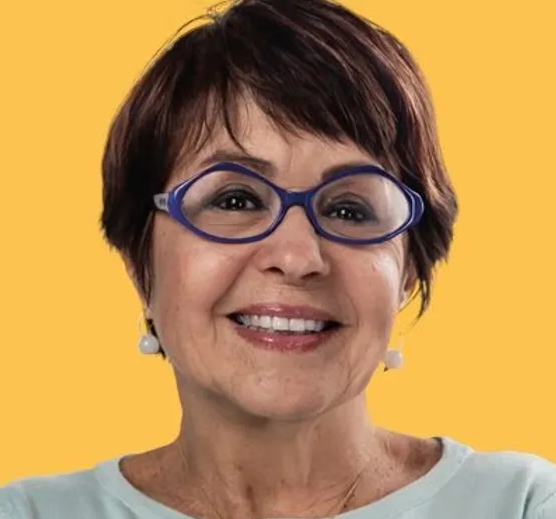Senior Fellow
Aspásia Camargo


Biography Aspásia Camargo
Aspásia Camargo was born in Rio de Janeiro on February 6, 1943.
She is a well-known sociologist and is currently a full professor at the Brazilian College of Advanced Studies (CBAE) at the Federal University of Rio de Janeiro. Aspásia is also a prominent environmentalist and politician, having held official positions at the federal, state, and municipal levels. Currently, she serves as the vice president of the Commercial Association of Rio de Janeiro.
Aspásia graduated in Social Sciences from the Federal University of Rio de Janeiro in 1964 and earned her Master’s and Doctoral degrees at the École des Hautes Études en Sciences Sociales at the Université de Paris (EHESS), where she studied and worked with Professor Alain Touraine, a specialist in social movements and post-industrial societies.
Camargo was a professor of sociology and political science at the State University of Rio de Janeiro and the Brazilian School of Public Administration at the Getúlio Vargas Foundation. From 1974 to 1992 she also served as Research Director of the Center for Research and Documentation of Brazilian Contemporary History (CPDOC). Additionally, she was President of the International Center for Sustainable Development (2000–2003).
She was a member of the Green Party from 2002 to 2015 and was elected city councilor (2004–2010) and state deputy of Rio de Janeiro (2010–2014). As a state representative, she chaired the Permanent Environmental Sanitation Commission for two terms and recently published The Epic of Sanitation: From the Sanitary Revolution to New Technologies.
In her public career, Aspásia Camargo served as Secretary for Culture of the State of Rio de Janeiro (1988–1991) and President of the prestigious Institute of Applied Economic Research (IPEA) at the Ministry of Planning (1993–1994).
She was also Deputy Minister for the Environment during President Fernando Henrique Cardoso’s administration, during which she created the Brazilian Commission for Sustainable Development and implemented the Brazilian Agenda 21.
Aspásia is dedicated to the study of political sociology and Brazilian history, with many books and articles on these subjects. She has also made significant contributions to the study and promotion of sustainable development, authoring several books and articles on the topic. Additionally, she was a member of the Board of Advisors responsible for the United Nations Rio+20 Conference in 2012, which focused on the green economy and poverty eradication.
Aspásia Camargo was first married to the late sculptor Sérgio de Camargo and lived in Paris for eight years. They had two daughters, and she now has four grandchildren. She later married engineer José Antonio Pessoa de Araújo. She currently resides in Ipanema, Rio de Janeiro.